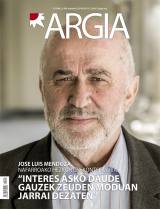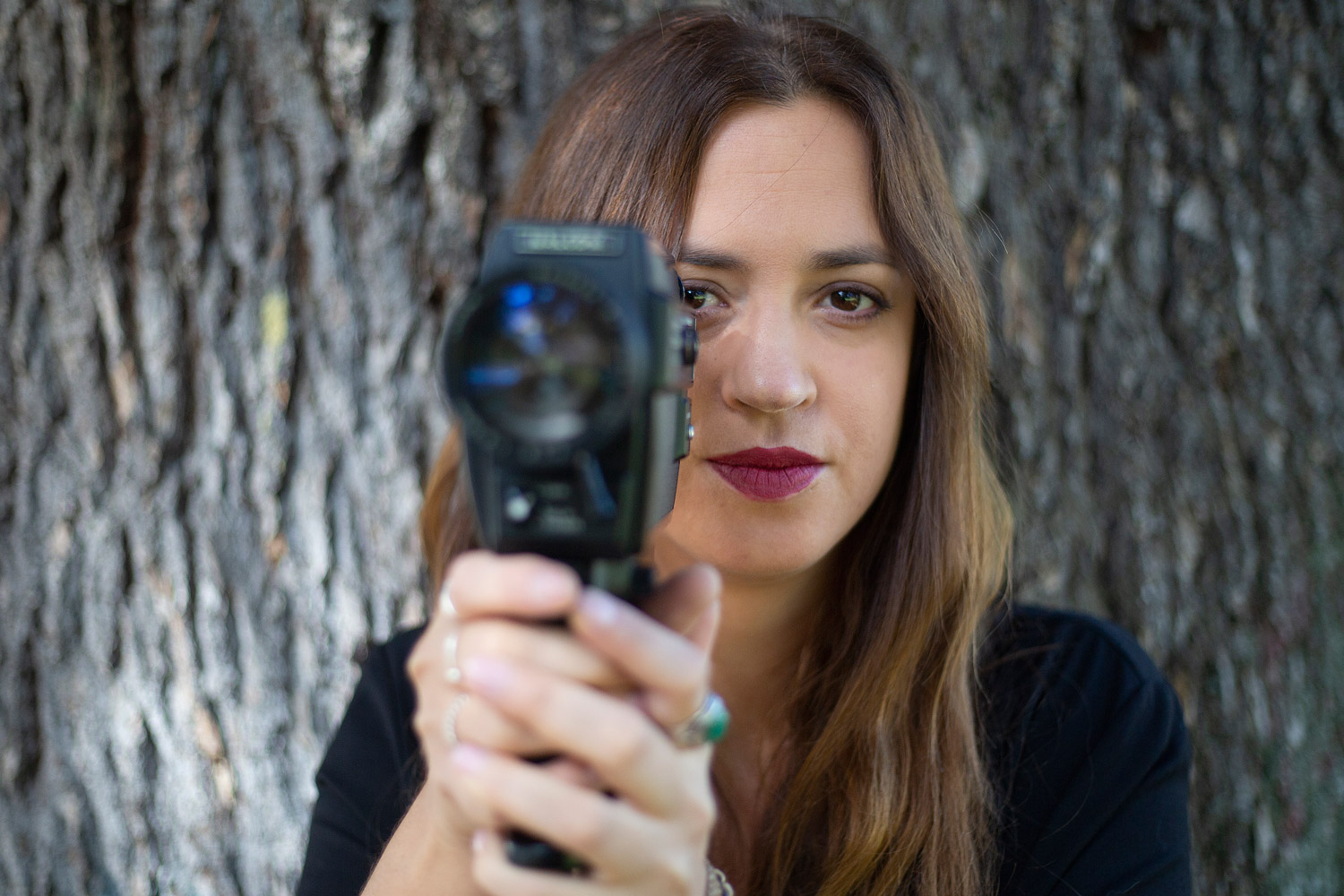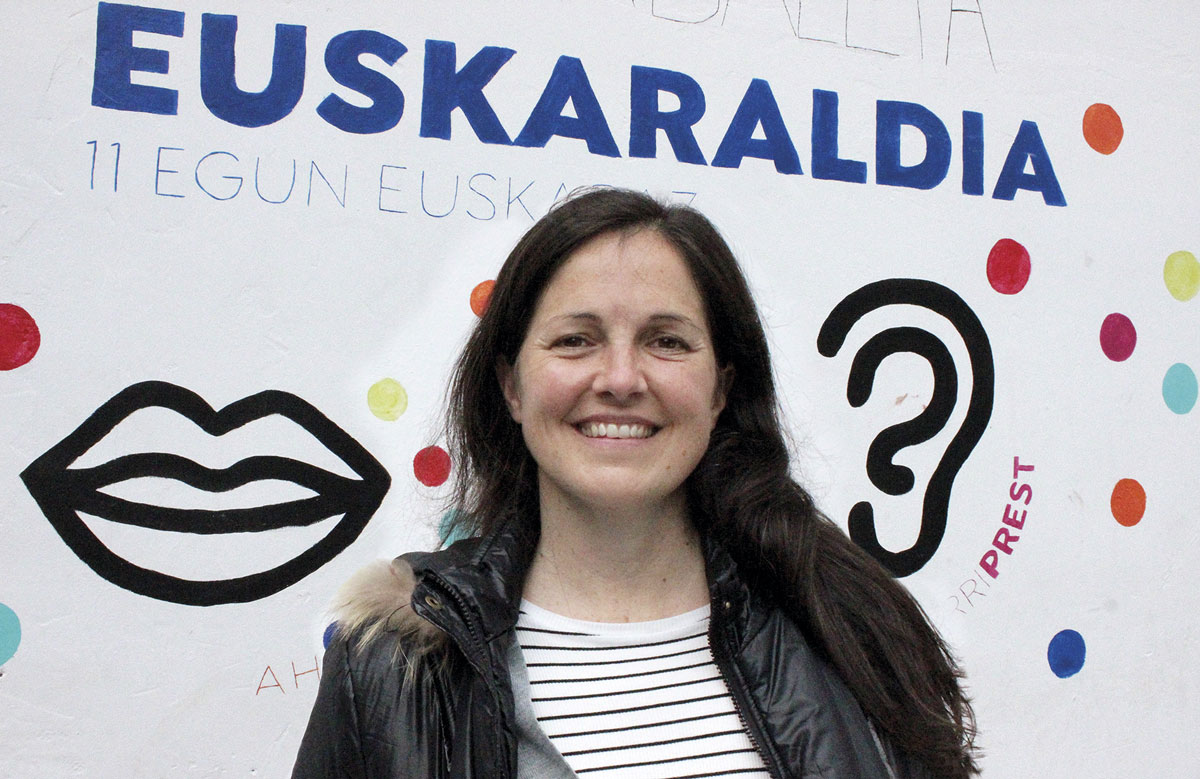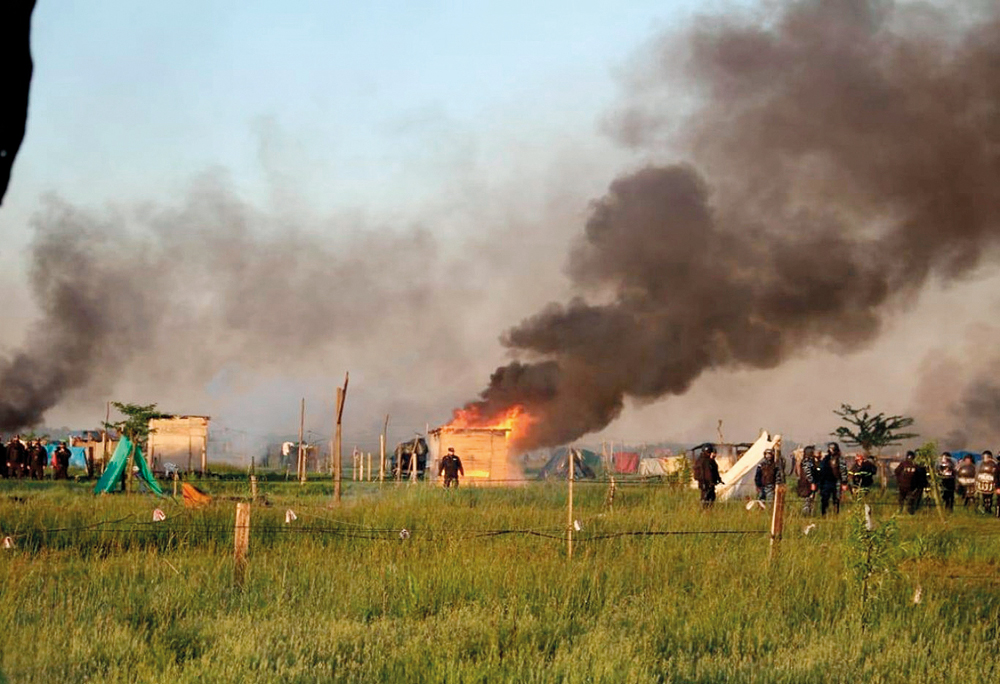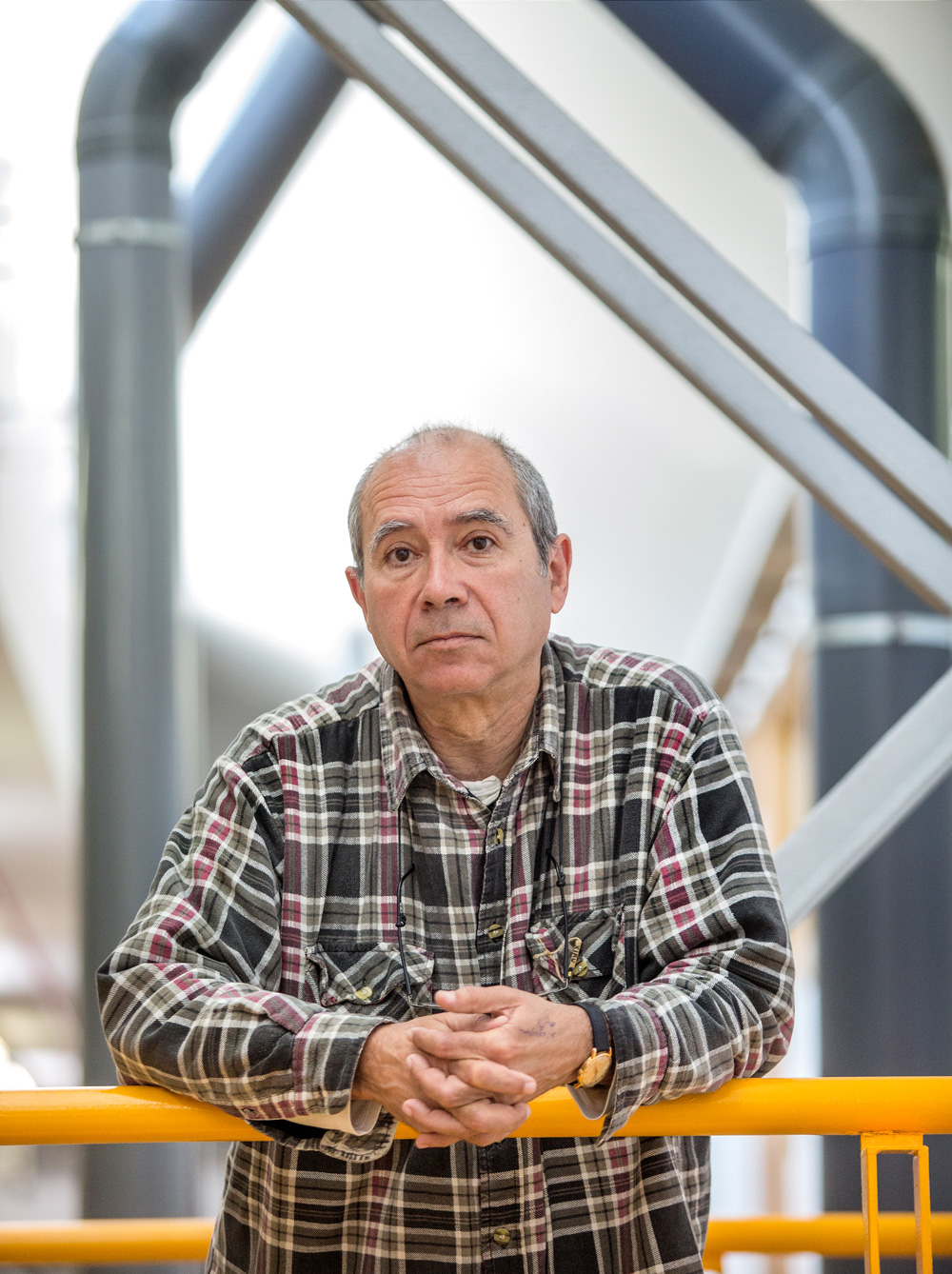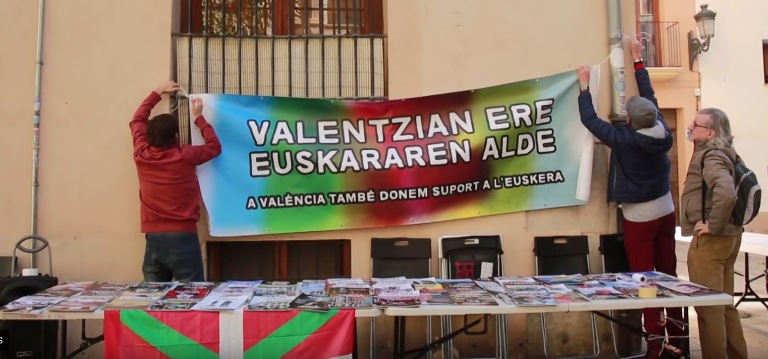"It seemed to me that if I forgot Chile, Pinochet had won the battle."
- We have been told that it comes from Chile, which has grown up in Cuba in the time after the death of Salvador Allende, who is a doctor, who has made many revolutionary changes in the hospital he runs... We have followed him, asking, until we have entered the deep well.
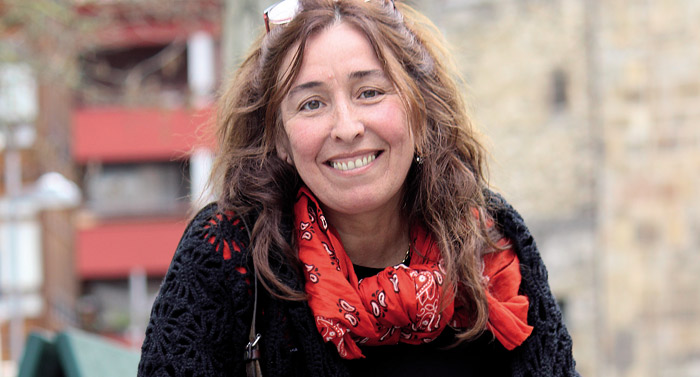
It's not your first visit to the people of your ancestors.
No. I first came in 1999, influenced by what I heard at home. In 1820 Manuel Yarza Balenzategi of the Altzin dwelling in Oñati emigrated to Chile and settled in the city of Minas, in the province of Polanco. Twenty years later, he married Josefa Lasarte Askobereta, from Oronoz, as a migrant as he did. They sent Oñati back to the great-grandfather Thomas to get married here. They had eight children: the five girls stayed here, while the three sons were sent to America, one of them being the soldier and the war of the other.
Traditional migration history.
But along with that migratory history, there was something else in our house: the family was very proud of the Basque origin. Some forms of being were attributed to origin. If someone at home was very active, they said: “It is not in vain Basque!” If someone was a bit brutal, the same thing. There were also legends at home. They said that his father had once been ordered to dig a hole in the pit and that he had finally had to tell him to stop working, but that it was already a great hole. These two things: the strength, on the one hand, and the ability to work hard, on the other, those that were characteristic of the Basque, on the other. In addition, there were some words my father used, words from here ... My grandfather was very friendly. When he was here in 1971…
Dad?
Yes, Grandpa Simon was here in 1971, and upon his return, only me in his granddaughter took the gift; and he also had 30 grandchildren. There was a connection between us two, and in part, I would dare to say it was because I had heard his story. He told me that I had been ezek dantzari, and when I was over 70 years old, I was jumping back and forth to teach me that I had been a dancer. In addition, they said that Simon and his brothers were very enterprising, they loved doing things, and they opened a small shoe shop, The Green Boot. Then they expanded the workshop and built the factory, taking the name of Yarman. “Yar,” of Yarza, and “Man,” of man, of English. Very successful industry. Anyway, there's something interesting to know. It was founded by Uncle Eladio, and when he hired the first workers, he asked them to come together and form a union, which would do them well.
That is not wrong. Here it seems like a wind blowing from the other side.
The union, on the other hand, needs a meeting place, and my uncle built a meeting place, a sports center, a corner for women -- at the beginning of the last century. That is, Uncle Eladio had a mindset that was not common at the time. It was a success both in the industry and in the relationship with the workers. I've met workers in that factory, I've been recognized, and I've only received admiration. "Yard you?" Eladius, Julian, Simon… It was them!” I have no reason to be proud.
You also talk about your family. But let's not forget about yourself. Who is Begoña Yarza?
I'm a pediatrician, an intensive doctor, specialized in intensive care, and since 2000 I've been trained in public health and social health management, and since then, director at a hospital in Chile. Something else? I am Begoña Yarza Sáez, born in Rengon (Chile) in 1966. Your name is Mapuche in Rengo. I lived there until I was seven. Then, from heaven you know, the coup d'état of Pinochet came, and our family had to evict the place.
You just hit the nail on your head. Pinochet's coup hit you.
Salvador Allende was killed in 1973. I was six years old, but I realized. My father was mayor of Rengo, a people of militants and leaders of the Socialist Party, and he was arrested. The traditional judgment or show, “for acting against the homeland…”, and this and the one, retolica military, and was sentenced to twenty years in prison, to comply in a concentration camp. However, our mother did not stop, mixed Ebro and Gárate, spoke to Unhcr, the UN, and managed to commute the prison sentence to our father and institutions. In return, he was exiled and in 1974, out of Chile! We did it with him: the father, the mother, the older sister, Anjela Aloña on Mount Oñati, Brother Simon and the five. We were given 24 hours to leave the country, and we went to Argentina, because it has us by our side. The soldiers in the prison where his father had been imprisoned did not appear to be entirely satisfied with leaving him free, and broke the first sheet of his identity card.
A page with your name.
Name, signature and other data of interest. They went to the airport and they wouldn't let him out because he didn't have valid documents. We were going to go with the Air France company and we had bought the tickets. But the border guards wouldn't let them pass. We were there for an hour and twenty minutes, and the captain of Air France waited for an hour and twenty minutes. We – the mother – are nervous and anxious, and the captain of the plane, telling our mother that they would be calm and waiting for their father. Finally, they let us out. I was the youngest in the house and I entered the plane, caught by my father's hand. As soon as I got in, Air France's captain told my father: “Mr. Simon, you are on the plane, you are stepping on the land of France, a land free from fascism. So here you are a free man. For us you are a hero!”
“At the reception of the hospital we have a Mapuche association to help you in case a Mapuche comes. And the Mapuche who didn’t confess its origin before, now has no inconfession.”
[Excited, with tears in the eyes]
For the first time in several months no one welcomed my father. They put us in the first class, without paying us, and they gave us chocolates and what they weren't. My father looked miserable. He had a plastic bag in his hand, the only thing he had in his jail: a towel. For the rest, he looked like an old man and he wasn't 40 years old. It has never been as old as then, neither tooth, nor blonde, nor lean… We arrived in Argentina, but my father has no document, and they wanted to return it to Chile. But as far as chance is concerned, a group of lawyers in defense of human rights certainly waited there for some, and they stood up to help us. And they let us in, but the emigrants took the papers out to all of us.
In Buenos Aires?
Yes, in Buenos Aires, without documents, and without documents we were not allowed to stay in hotels. It was Perón's second time in Argentina, when it coincided with the military. We Chileans were not welcome. In the end, we went to a seminar, in the center of Buenos Aires. But my father was always saying that we should leave. In fact, there was also the former President of Bolivia, Juan José Torres, who had been attacked a year earlier with a coup d ' état, according to the sources. There he was, therefore, Torres with his escort. One day, a bomb placed at the seminary door, being us there. They had, of course, killed him. Father, increasingly convinced: “Let’s go!” And we took the pilgrimage, and not the third, we entered fourth class accommodation, where no documentation was required. We were there for a while. I remember the secret police came to the inn to search for the Chileans. His father, an actor!, began to speak like the Argentinian, the one River [Plate] and the other Boca [Juniors], while his mother remained silent. I was sent to the shower with my sister to keep silent. My brother had hid himself.
Why did Chileans seek the secrets of Argentina?
We know that later. Police and paramilitaries from Argentina and Chile had a Condor plan to kidnap Chileans and others. It was a very rare time, when we weren't out on the street, except for an hour of night walk. But in this way you couldn't live and the embassy was going back and forth asking for asylum. The Swedish promised him the documents within two months. Canadians, time. Cuevas, fifteen dias.Identidad and Cuban transit. It was not a passport in itself, but it was a document of such calibre, an identifiable document. And we went to Cuba in 1974, when we were eight. We were there for sixteen years.
You lived in Cuba since you were young.
Yes… I thought Cuba was wonderful. I'm no longer a foreign country. I've been happy when I've been there. I like hot weather, humidity, seeing people laugh from the morning… It’s so easy to live in Cuba! I had a beautiful youth there. Among the students, I was the head of the school, the president of the student federation, and this one and him. I've even gotten to the classroom. When someone was visiting, a motto had to be said. Mine said, “The Chilean people …” I began to say, and my colleagues had to answer: “…it will crush fascism.” I am referring to Pinochet. I lived in Cuba, Cuban, but at the same time, I was thinking about Chile. It seemed to me that if I forgot Chile, Pinochet and his supporters had won the battle.
What do you say about Cuba’s contradictions?
Cuba has always been like this. Even those who criticize the Cuban revolution – from within Cuba, not from Miami – are revolutionaries. It has to open up more, it has to have more democracy… yes, all right, it has to improve the process, but from the left. There is no doubt that mistakes have been made, criticism has been constant. The processes are tortuous, not white or black, and the revolution is alive, and the Cubans who have gone to Miami also ask the U.S. Government for Cuban standards, such as the universal health system. They're in Miami, but they talk about socialism, not about the neoliberal model. Those who have left Cuba have also taken advantage of the heritage of the left.
After sixteen years he returned to Chile in 1990.
Yes. When they restored democracy. First it was me, to open the way. I knew it would be easier for me than my father, who was then 60 years old. I went back, I valued medical studies in Cuba, and I started working in Santiago de Chile, with breeders and everything. I also made salsa, because I had trained in Cuba. I picked up a room. So, I started preparing for the family's return, I rented a house, I adapted it -- I wanted my parents to enjoy coming.
And what's the story of your family's return?
My father did worse. Anyway, they came to Santiago, and it wasn't their world. On the contrary, the father returned to Chile upon returning to Rengo. Until then he was a town in Rengo, there he had his parents friends, there his story… He began to militate again in the socialist party, he was elected a councilor. The young people campaigned for him, our father Simon of exile, those young people took him for a hero. The combination felt good.
What about his story?
I stayed working in Santiago, a pediatrician.
You've done a great innovation at the Exequiel González Cortés Hospital. You have been your director for sixteen years.
Well… Modernity orders the management of resources. The hospital is an organization, a service company, and there the most valuable are the people. “Human resources” says the administration. What is the “human resource”? People! And so it should be said: “people”. And this is not about people, it's about people, it's about mutual relationships. The Hospital is a community, such as the town or neighborhood, that aims to improve the health of people: people, the sick and their families. The important thing is the conversation. Not everything is a technical skill for doing endoscopies, you have to take care of the inside of what makes endoscopies, because it will do its job better if our organization considers it a person.
And what are you driving interculturality in the hospital?
We have the Mapuche community, and the Haitians, and the Peruvians -- and they have their own organizations. And we have made the relationships between the community of our hospital and its communities, that is, with the Migratory Action Movement. Not with such an individual, but with their organizations. And so at the reception of the hospital we have a Mapuche association to help you in case a Mapuche comes. And the Mapuche that used to not confess its origin, now doesn't. At the hospital we celebrate the Mapuche rituals, all their festivities. And we do the same with the Haitians and the Peruvians. It's been an amazing experience.
Oñatin ditu aitaren erroak, Galizian amarenak. Aitaren ibilbideak gidatu du Yarza Sáez familiaren bidea, Pinocheten estatu kolpeak erbestera eraman baitzuen. Kuban hazi zen Begoña, hantxe ikasi Medikuntza, baina Txile gogoan beti, herrira itzuli zen Pinochet burugabetu zutenean, 1990ean. Mediku da, eta ospitale handi bateko zuzendari Santiago hiriburuan. Han, organizazioa ez ezik, komunitatea du ospitalea. Ikastekorik franko dugula erakutsi digu Begoña Yarza Sáezek.
“1999. urtean Txiletik Bartzelonara joan nintzen doktoregoa egitera, eta orduan etorri nintzen estreinakoz Euskal Herrira. Donostiatik barrena sartu nintzen, mendiak ikusi nituen, euria ari zuen, dena berde, dena baserri… Aitaitari galdetua nion txikitan nolakoa zuen herrialdea, eta berak horixe esan zidan: ‘etxe zuri teila-gorriak’. Eta etorri, eta ikusi, eta aitaitak esandakoa ezagutu nuen. Berak esan zuen bezal-bezala zen! Eta hemengo janaria zen, eta ahogozatu, eta barru-barruan neraman gustua zen!”.
“Zoragarria da ospitalean haitiarrekin lan egitea. Oraindik sorginetan eta gisako aztikerietan sinesten dute, eta guk bat egiten dugu haien erritualekin. Haiek ezagutzeak Alejo Carpentier irakurtzera eraman ninduen [El reino de este mundo, Mundu honetako erresuma], eta txundituta utzi ninduen. Liluragarria da”.
Euskal jatorriko 37 gazte estatubatuar Euskal Herria ezagutzen eta euskara ikasten aritu dira uda hastapenean.
San Frantziskoko Euskal Etxeak 40 urte bete ditu asteburu huntan.
I have received an email from Brazil. These are words of beasaindarra Estebe Ormazabal Insausti, a subscriber of ARGIA. It's not the first person living abroad that we've brought to this corner. Little by little we are collecting the opinions, reflections, criticism and praise of... [+]
San Vicente barrutia (Argentina), 1934ko maiatzaren 18a. Mathilde Díaz Vélez lurjabeak Buenos Airesetik 40 kilometro ingurura zeuden bere lursailetan Guernica izeneko herria fundatzeko eskaera helarazi zion Buenos Aires probintziako Obra Publikoetako ministroari,... [+]









